At twenty-seven minutes past eleven that Monday morning in February, Lincoln’s Birthday, I opened the door between the office and the front room, entered, shut the door, and said, “Miss Blount is here.”
Without turning his head Wolfe let out a growl, yanked out some more pages and dropped them on the fire, and demanded, “Who is Miss Blount?”
I tightened my lips and then parted them to say, “She is the daughter of Matthew Blount, president of the Blount Textile Corporation, who is in the coop charged with murder, and she has an appointment with you at eleven-thirty, as you know. If you’re pretending you’ve forgotten, nuts. You knew you couldn’t finish that operation in half an hour. Besides, how about the comments I have heard you make about book burners?”
“They are not relevant to this.” He yanked out more pages. “I am a man, not a government or a committee of censors. Having paid forty-seven dollars and fifty cents for this book, and having examined it and found it subversive and intolerably offensive, I am destroying it.” He dropped the pages on the fire. “I’m in no mood to listen to a woman. Ask her to come after lunch.”
“I have also heard you comment about people who dodge appointments they have made.”
Pause. More pages. Then: “Very well. Bring her here.”
I returned to the office, shutting the door, crossed to the red leather chair near the end of Wolfe’s desk where I had seated the caller, and faced her. She tilted her head back to look up at me. She was a brownie, not meaning a Girl Scout — small ears and a small nose, big brown eyes, a lot of brown hair, and a wide mouth that would have been all right with the corners turned up instead of down.
“I’d better explain,” I told her. “Mr. Wolfe is in the middle of a fit. It’s complicated. There’s a fireplace in the front room, but it’s never lit because he hates open fires. He says they stultify mental processes. But it’s lit now because he’s using it. He’s seated in front of it, on a chair too small for him, tearing sheets out of a book and burning them. The book is the new edition, the third edition, of Webster’s New International Dictionary, Unabridged, published by the G. & C. Merriam Company of Springfield, Massachusetts. He considers it subversive because it threatens the integrity of the English language. In the past week he has given me a thousand examples of its crimes. He says it is a deliberate attempt to murder the — I beg your pardon. I describe the situation at length because he told me to bring you in there, and it will be bad. Even if he hears what you say, his mental processes are stultified. Could you come back later? After lunch he may be human.”
She was staring up at me. “He’s burning up a dictionary?”
“Right. That’s nothing. Once he burned up a cookbook because it said to remove the hide from a ham end before putting it in the pot with lima beans. Which he loves most, food or words, is a tossup.”
“I don’t want to come back.” She stood up. “I want to see him now. I must see him now.”
The trouble was, if I persuaded her to put it off she might not show again. When she had phoned for an appointment it had looked as if we were going to have Matthew Blount for a client, and, judging from the newspapers and the talk around town, he could use plenty of good detective work; and he could pay for it, even at Nero Wolfe’s rates. So I didn’t want to shoo her out, and also there was her face — not only the turned-down corners of her mouth, but the look in her eyes. There is trouble in the eyes of nearly everyone who comes to that office, but hers were close to desperate. If I eased her out she might go straight to some measly agency with no genius like Wolfe and no dog like me.
“Okay, but I told you,” I said, and went to my desk for my notebook, stepped to the door to the front room, and opened it. She came, leaving her coat, pallid mink, on the back of the chair.
I moved up chairs for us, but with Wolfe so close to the fireplace I couldn’t put her directly facing him. He rarely stands when a caller enters, and of course he didn’t then, with the dictionary, the two-thirds of it that was left, on his lap. He dropped sheets on the fire, turned to look at her, and inquired, “Do you use ‘infer’ and ‘imply’ interchangeably, Miss Blount?”
She did fine. She said simply, “No.”
“This book says you may. Pfui. I prefer not to interrupt this auto-da-fé. You wish to consult me?”
“Yes. About my father. He is in — he has been arrested for murder. Two weeks ago a man died, he was poisoned—”
“If you please. I read newspapers. Why do you come to me?”
“I know my father didn’t do it and I want you to prove it.”
“Indeed. Did your father send you?”
“No.”
“Did his attorney, Mr. Kalmus?”
“No, nobody sent me. Nobody knows I’m here. I have twenty-two thousand dollars here in my bag.” She patted it, brown leather with straps, on her lap. “I didn’t have that much, but I sold some things. I can get more if I have to. My father and mother mustn’t know I’m doing this, and neither must Dan Kalmus.”
“Then it’s impossible.” Wolfe tore pages loose and dropped them on the fire. “Why must they not know?”
“Because they wouldn’t let — they’d stop it. I’m sure my father would.” She was gripping the bag. “Mr. Wolfe, I came to you because I had to. I knew I’d have to tell you things I shouldn’t tell anybody. This is the first good thing I have ever done. That’s the trouble with me, I never do anything bad and I never do anything good, so what’s the use? And I’m twenty-two years old, that’s why I brought twenty-two thousand dollars.”
She patted the bag. “But I’m doing this. Dan Kalmus has been my father’s lawyer for years, and he may be good at business things, but he’s no good for this. I know he isn’t; I’ve known him all my life. Last week I told him he should get you, get you to help, and he smiled at me and said no, he didn’t like the way you work. He says he knows what he’s doing and it will be all right, but it won’t. I’m afraid; I’m scared clear through.” She leaned forward. “Mr. Wolfe, my father will be convicted of murder.”
Wolfe grunted. He tore pages. “If your father wants to hire me I might consider it without his attorney’s approval, but it would be difficult.”
She was shaking her head. “He wouldn’t. If Dan Kalmus said no, he wouldn’t. And my mother wouldn’t if my father said no. So it’s just me. I can hire you, can’t I?”
“Certainly not. Without the cooperation of your father and his attorney I couldn’t move a finger.” Wolfe tore pages with a little extra force. Twenty-two grand wouldn’t break any record, but it would be a nice start on 1962.
“That’s silly,” Miss Blount said. “Of course your mental processes are stultified by the fire. Why I told Dan Kalmus to get you, and why I came, I thought you could do things that nobody else can do. You’re supposed to be a wizard. Everyone says you are. Dan Kalmus himself said you’re a wizard, but he doesn’t want you taking over his case. That’s what he said, ‘my case.’ It’s not his case, it’s my father’s case!”
“Yes,” Wolfe agreed, “your father’s case, not yours. You must—”
“I’m making it mine! Didn’t I say this is the first good thing I’ve ever done?” Leaning forward, she grabbed his wrist and jerked his hand away from the dictionary, and hung on to the wrist. “Does a wizard only do easy things? What if you’re the only man on earth who can save my father from being convicted of a murder he didn’t do? If there was something I could do that no one else on earth could do, I’d do it! You don’t need my father or his attorney because I can tell you anything they can. I can tell you things they wouldn’t, like that Dan Kalmus is in love with my mother. Dan Kalmus wouldn’t, and my father couldn’t because he doesn’t know it, and he’s in jail and I’m not!”
Читать дальше
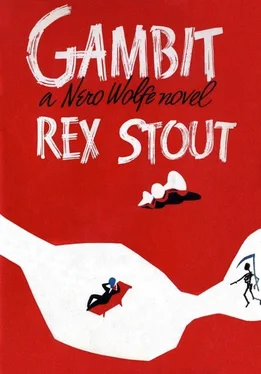
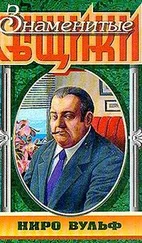
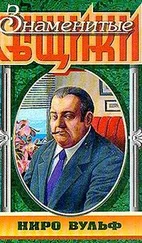

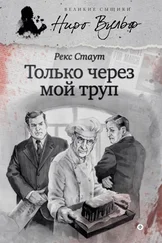

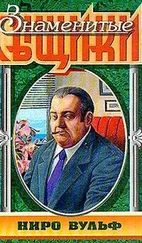
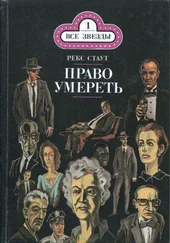
![Рекс Стаут - Лига перепуганных мужчин [litres]](/books/394342/reks-staut-liga-perepugannyh-muzhchin-litres-thumb.webp)